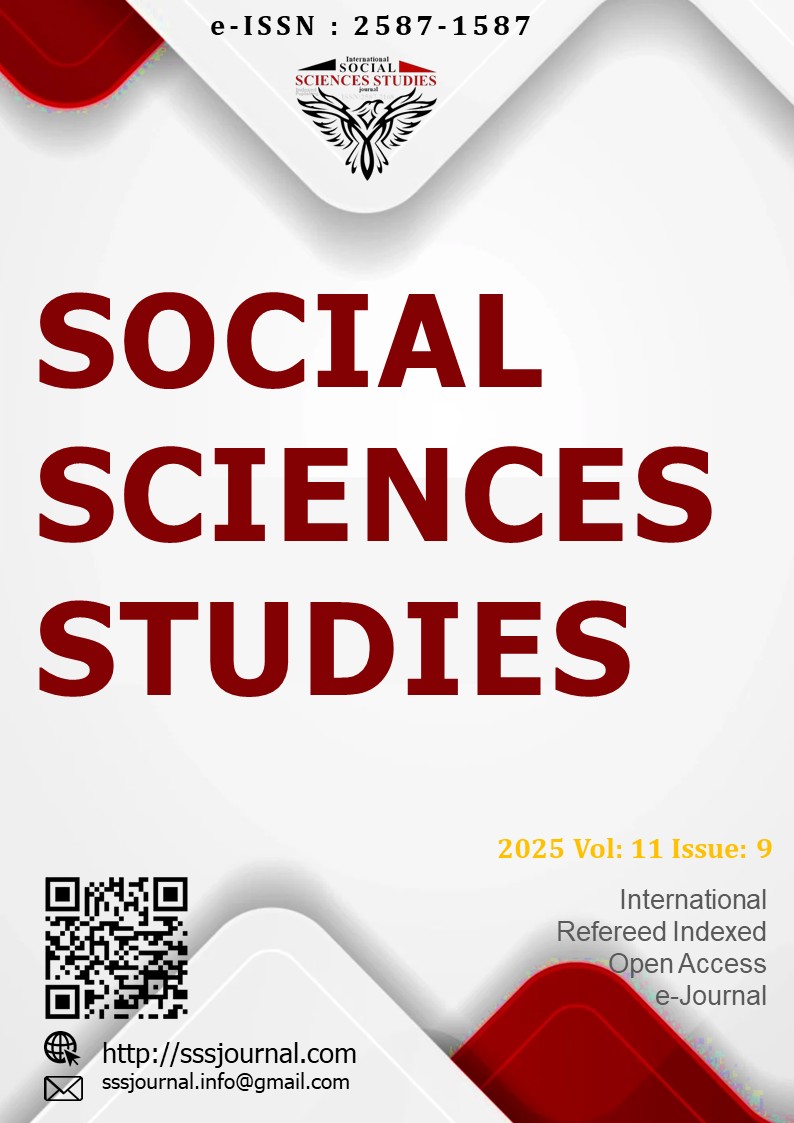Türkiye’nin Doğrudan Yabancı Yatırımları, Dış Ticareti ve Ekonomik Büyümesi Üzerine Bir Eşbütünleşme Çalışması (1970-2023)
Author :
Abstract
|
Bu çalışma, Türkiye’nin 1970-2023 dönemine dair doğrudan yabancı yatırımlar (DYY), dış ticaret (ithalat ve ihracat) ve ekonomik büyümesi arasındaki uzun dönemli ilişkileri incelemektedir. Değişkenler arasındaki ilişkiye dair giriş bölümünün ardından literatürde 4 değişkenin ilişkisinin incelendiği çalışmaların bir kısmına yer verilmiştir. Ardından metodoloji bölümünde ilk olarak verilerin durağanlığı ADF ve PP birim kök testleriyle sınanmış, değişkenlerin birinci farktan durağan oldukları belirlenmiştir. Ardından Johansen eşbütünleşme testi kullanmak için uygun gecikme uzunluğu tespit edilmiş, ters köklerin birim çember içindeki konumları sunulmuş ve bu ters köklere ait sayısal veriler VAR durağanlık koşul kontrolü altında sunulmuştur. Gerekli ön testlerin ardından değişkenler arası uzun dönemli ilişkilerin varlığı Johansen eşbütünleşme testi ile gerçekleştirilmiştir. İz (Trace) istatistik değerleri ve tablosuna göre değişkenler arasında eşbütünleşme ilişkisi testpit edilmiş ve devamında FMOLS tahmincisi ile değişkenlerin ilişkisi ve bu ilişkiye yönelik katsayılar tahmin edilmiştir. Yapılan katsayı tahminlerinin sonuçlarına göre DYY’nin ekonomik büyüme ve ihracat üzerinde pozitif etkisi bulunduğu, büyüme ve ihracatın da aynı şekilde DYY’yi olumlu şekilde etkilediği saptanmıştır. İthalatın büyüme ve ihracat üzerinde, büyüme ve ihracatın da ithalat üzerinde anlamlı etkileri sonucuna ulaşılmıştır. Bu sonuçlar, Türkiye’nin DYY gelirlerinin, ekonomik büyümeye katkı sağladığı ve ihracat ile çift yönlü etkileşimde olduğunu göstermektedir. Sonuçlara dair öneriler ise yatırım ortamının iyileştirilmesi, yabancı yatırımların ihracat odaklı olması, ithalata olan bağlılığın azaltılması ve yerli üretimin teşvik edilmesi olarak sıralanmıştır. |
Keywords
Abstract
This study investigates the long-term relationships among foreign direct investment (FDI), foreign trade (imports and exports), and economic growth in Turkey for the period 1970–2023. Following the introductory section discussing the theoretical relationship among the variables, a selection of previous studies examining the interactions between these four variables in the literature is presented. In the methodology section, the stationarity of the data is first tested using the Augmented Dickey-Fuller (ADF) and Phillips-Perron (PP) unit root tests, and all variables are found to be stationary at their first differences. Subsequently, the appropriate lag length for the Johansen cointegration test is determined. The positions of inverse roots within the unit circle are presented, and their corresponding numerical values are provided under the VAR stability condition check. Upon the completion of necessary pre-tests, the existence of long-term relationships among the variables is examined using the Johansen cointegration test. According to the Trace statistics and the corresponding table, a cointegration relationship among the variables is confirmed. Based on this result, the Fully Modified Ordinary Least Squares (FMOLS) estimator is employed to estimate the coefficients and nature of the relationships between the variables. The estimation results reveal that FDI has a positive effect on both economic growth and exports, and that economic growth and exports, in turn, positively influence FDI. Furthermore, imports are found to have a significant effect on both economic growth and exports, while economic growth and exports also significantly affect imports. These findings suggest that FDI inflows contribute to Turkey’s economic growth and engage in a bidirectional interaction with exports. Based on the results, the study proposes several policy recommendations: improving the investment climate, directing foreign investments toward export-oriented sectors, reducing dependence on imports, and promoting domestic production.





